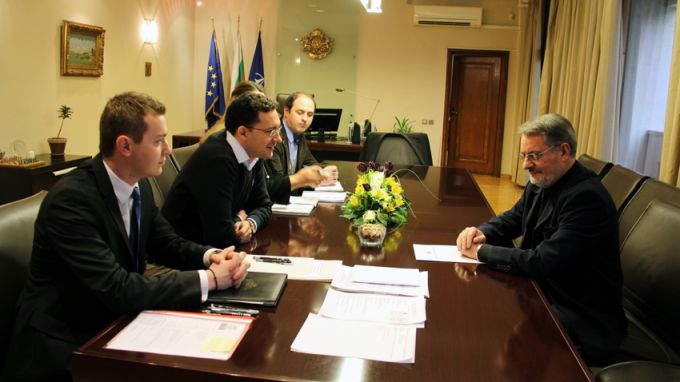
The first days of 2015 gave reason to expect some kind of progress to be made in Bulgarian-Macedonian relations. Prime Minister Boyko Borissov was interpellated in parliament on this country’s policy with regard to our neighbour. There followed a meeting between Foreign Minister Daniel Mitov and Macedonia’s ambassador to this country Blagoj Handjiyski. It has become apparent that Bulgaria’s position on Macedonia’s European prospects has remained unaltered since the time of the first Borissov cabinet.
Just as during the first Borissov government, the current, second cabinet of Prime Minister Boyko Borissov is emphatic in its support for Macedonia’s European and Euro-Atlantic integration and is prepared to render it expert assistance on specific issues connected with the experience Bulgaria has accumulated on its way to membership of the EU and NATO. But this support is not unconditional and is contingent on the signing of an agreement on good neighbourhood and cooperation, based on the declaration of good neighbourhood signed by the prime ministers of the two countries in 1999. Essentially, by force of this agreement Bulgaria wants to lend legal value to the declaration, without any additional demands on Macedonia. But Skopje has its reservations.
Bulgaria also wants historical events, dates and figures that are shared by the two countries to be marked jointly - such as for example a joint celebration of Sts. Cyril and Methodius in Rome.
As yet, Macedonia has not given a clear answer. Expert groups have been set up at a foreign ministry level for consulting the good neighbourhood agreement, yet political instability in both countries in recent years has proved to be an obstacle to their work. Last week’s meeting between Foreign Minister Daniel Mitov and the ambassador of Macedonia raised hopes of a positive development, including expectations of a meeting between the foreign ministers of the two countries that would push the political dialogue up to a higher level. On this dialogue hang the European and Euro-Atlantic prospects of Macedonia, but also progress on a number of important bilateral and regional projects such as putting up new border check points, building railway connections between the two countries, a Pan-European corridor between the Bulgarian Black Sea coast and the Albanian port of Vlorë via Macedonian territory. The stakes are high but as yet progress is negligible and, regrettably, bilateral relations continue problematic.
English version: Milena Daynova
The Bulgarian National Assembly is holding an extraordinary meeting at which MPs are hearing the senior management of the Central Election Commission and the Information Service company regarding their actions in the Constitutional Court case..
Student protesters in Serbia call for a general strike Student protests against the government and President Aleksandar Vucic continue in Serbia for the fourth month. In an appeal on Instagram, the protesters called on..
Life between Bulgaria and France... A little more than 80 years ago, in 1942, a boy was born in Sofia - the love child of a Bulgarian woman and a Frenchman. His parents met in France, but they decided to start a life in Bulgaria, so the couple settled in..
“In the European Parliament, the word ‘compromise’ does not necessarily carry a negative meaning. Compromise refers to finding common ground in a highly..

+359 2 9336 661
